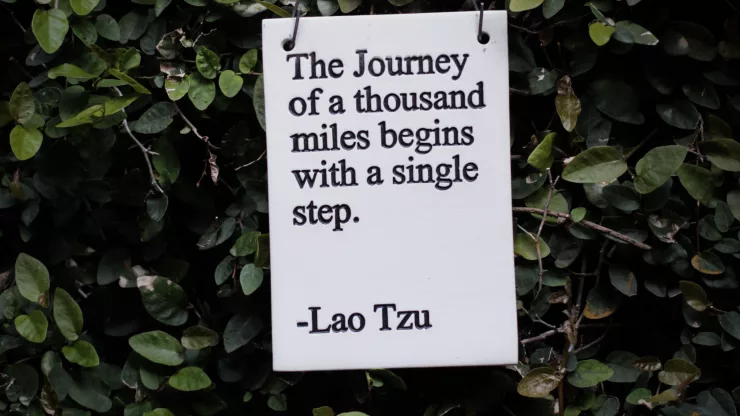Divorce can be a challenging experience, and it is important to develop strategies to embrace change effectively.
Coping with the end of a marriage involves accepting the reality of divorce, finding support, navigating the emotional journey of divorce, developing new routines and habits, embracing a positive mindset, and moving forward.
This article provides insights into each of these strategies to help individuals manage the transition to a new chapter in their lives.
Jump to Section
Accepting the Reality of Divorce
Accepting the reality of divorce is the first step in healing and moving forward. It is important to acknowledge that the marriage has ended and to let go of any hopes of reconciliation.
Here are some tips for accepting the reality of divorce:
- Allow yourself to grieve the loss of the marriage
- Avoid blaming yourself or your partner for the divorce
- Focus on the present moment rather than dwelling on the past or worrying about the future
- Seek professional help if you are struggling to come to terms with the divorce
Finding Support and Building a Support System
Finding support and building a support system is crucial in dealing with divorce. Talking to friends, family, or a therapist can help individuals process their emotions and gain perspective.
Here are some tips for finding support and building a support system:
- Reach out to trusted friends and family members for emotional support
- Consider joining a support group or seeking therapy to talk through your feelings
- Surround yourself with positive and supportive people who will uplift you
- Take time to build new friendships and social connections
Navigating the Emotional Journey of Divorce
Navigating the emotional journey of divorce can be challenging, but it is essential to take care of oneself during this time. It is normal to experience a range of emotions, such as sadness, anger, and fear.
Here are some tips for navigating the emotional journey of divorce:
- Practice self-care by engaging in activities that bring joy and relaxation
- Allow yourself to feel your emotions without judgment or criticism
- Seek professional help if you are struggling to manage your emotions
- Focus on the positive aspects of your life and the opportunities that lie ahead
Developing New Routines and Habits
Developing new routines and habits can help individuals adjust to life after divorce. This can involve creating a new schedule, trying new hobbies, or establishing healthy habits. Here are some tips for developing new routines and habits:
- Set realistic goals for yourself and take small steps towards achieving them
- Create a new daily routine that works for you and your lifestyle
- Try new hobbies or activities that interest you
- Establish healthy habits, such as exercise, healthy eating, and regular sleep patterns
Embracing a Positive Mindset and Moving Forward
Embracing a positive mindset and moving forward is essential in dealing with divorce. This involves letting go of negative thoughts and emotions and focusing on the present moment.
Here are some tips for embracing a positive mindset and moving forward:
- Practice gratitude by focusing on the positive aspects of your life
- Let go of negative thoughts and emotions and focus on the present moment
- Set new goals and aspirations for yourself
- Celebrate your accomplishments, no matter how small they may be
FAQ
How long does it take to heal from a divorce?
The healing process can vary from person to person and depends on various factors, such as the length of the marriage, the reason for the divorce, and the individual’s emotional resilience. It is important to allow oneself time to grieve and process the divorce, and seek professional help if needed.
How can I help my children cope with divorce?
It is important to be honest with your children about the divorce and to reassure them that they are loved and supported.
Maintain a routine as much as possible and avoid speaking negatively about your ex-spouse in front of your children.
Seek professional help if your children are struggling to cope with the divorce.
Is it normal to feel guilty after a divorce?
It is normal to experience a range of emotions after a divorce, including guilt. It is important to acknowledge these emotions and seek professional help if they are impacting your daily life.
Remember to focus on the present moment and to let go of any self-blame or shame.
Dealing with divorce can be a difficult and emotional journey, but with the right strategies and support, individuals can embrace change and move forward.
Remember to focus on accepting the reality of divorce, finding support, navigating the emotional journey, developing new routines and habits, embracing a positive mindset, and moving forward.
By doing so, individuals can create a new and fulfilling chapter in their lives.

With a deep passion for personal development, Ben has dedicated his career to inspiring and guiding others on their journey towards self-improvement.
His love for learning and sharing knowledge about personal growth strategies, mindfulness, and goal-setting principles has led him to create My Virtual Life Coach.
Contact Ben at [email protected] for assistance.




